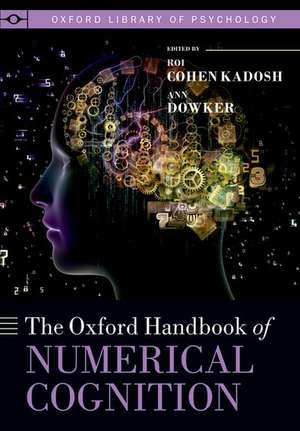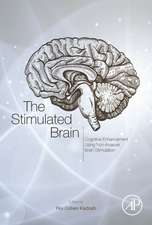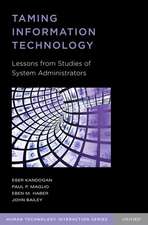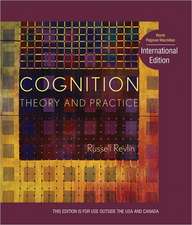Oxford Handbook of Numerical Cognition: Oxford Library of Psychology
Editat de Roi Kadosh, Ann Dowkeren Limba Engleză Paperback – 24 noi 2016
Din seria Oxford Library of Psychology
-
 Preț: 365.73 lei
Preț: 365.73 lei - 23%
 Preț: 930.94 lei
Preț: 930.94 lei - 34%
 Preț: 794.94 lei
Preț: 794.94 lei - 32%
 Preț: 778.53 lei
Preț: 778.53 lei - 14%
 Preț: 1008.17 lei
Preț: 1008.17 lei - 34%
 Preț: 1080.01 lei
Preț: 1080.01 lei - 23%
 Preț: 926.67 lei
Preț: 926.67 lei - 34%
 Preț: 1055.24 lei
Preț: 1055.24 lei - 14%
 Preț: 339.74 lei
Preț: 339.74 lei - 23%
 Preț: 1081.51 lei
Preț: 1081.51 lei - 33%
 Preț: 687.81 lei
Preț: 687.81 lei - 23%
 Preț: 1218.63 lei
Preț: 1218.63 lei - 12%
 Preț: 659.49 lei
Preț: 659.49 lei - 33%
 Preț: 728.14 lei
Preț: 728.14 lei - 14%
 Preț: 605.02 lei
Preț: 605.02 lei - 34%
 Preț: 1296.28 lei
Preț: 1296.28 lei - 23%
 Preț: 1057.75 lei
Preț: 1057.75 lei - 33%
 Preț: 686.58 lei
Preț: 686.58 lei - 23%
 Preț: 982.70 lei
Preț: 982.70 lei - 33%
 Preț: 829.25 lei
Preț: 829.25 lei - 27%
 Preț: 1112.16 lei
Preț: 1112.16 lei - 24%
 Preț: 366.79 lei
Preț: 366.79 lei - 27%
 Preț: 1218.13 lei
Preț: 1218.13 lei - 34%
 Preț: 1154.63 lei
Preț: 1154.63 lei - 33%
 Preț: 684.05 lei
Preț: 684.05 lei - 33%
 Preț: 731.24 lei
Preț: 731.24 lei - 33%
 Preț: 650.02 lei
Preț: 650.02 lei - 34%
 Preț: 796.97 lei
Preț: 796.97 lei - 33%
 Preț: 682.10 lei
Preț: 682.10 lei - 33%
 Preț: 827.89 lei
Preț: 827.89 lei - 26%
 Preț: 708.76 lei
Preț: 708.76 lei - 23%
 Preț: 1628.61 lei
Preț: 1628.61 lei - 20%
 Preț: 618.15 lei
Preț: 618.15 lei - 5%
 Preț: 1228.30 lei
Preț: 1228.30 lei - 15%
 Preț: 370.97 lei
Preț: 370.97 lei - 5%
 Preț: 1426.29 lei
Preț: 1426.29 lei - 23%
 Preț: 1389.15 lei
Preț: 1389.15 lei - 5%
 Preț: 1041.50 lei
Preț: 1041.50 lei - 27%
 Preț: 1112.44 lei
Preț: 1112.44 lei - 23%
 Preț: 374.66 lei
Preț: 374.66 lei - 23%
 Preț: 937.60 lei
Preț: 937.60 lei - 33%
 Preț: 1094.59 lei
Preț: 1094.59 lei - 23%
 Preț: 1101.73 lei
Preț: 1101.73 lei - 33%
 Preț: 799.90 lei
Preț: 799.90 lei - 34%
 Preț: 1033.24 lei
Preț: 1033.24 lei - 34%
 Preț: 1358.82 lei
Preț: 1358.82 lei - 33%
 Preț: 804.39 lei
Preț: 804.39 lei
Preț: 363.84 lei
Preț vechi: 481.49 lei
-24% Nou
Puncte Express: 546
Preț estimativ în valută:
69.62€ • 72.88$ • 57.61£
69.62€ • 72.88$ • 57.61£
Carte disponibilă
Livrare economică 05-11 martie
Preluare comenzi: 021 569.72.76
Specificații
ISBN-13: 9780198795759
ISBN-10: 0198795750
Pagini: 1212
Dimensiuni: 171 x 246 x 44 mm
Greutate: 1.75 kg
Editura: OUP OXFORD
Colecția OUP Oxford
Seria Oxford Library of Psychology
Locul publicării:Oxford, United Kingdom
ISBN-10: 0198795750
Pagini: 1212
Dimensiuni: 171 x 246 x 44 mm
Greutate: 1.75 kg
Editura: OUP OXFORD
Colecția OUP Oxford
Seria Oxford Library of Psychology
Locul publicării:Oxford, United Kingdom
Notă biografică
Roi Cohen Kadosh is a Wellcome RCD Fellow at the University of Oxford. His work combines basic and applied science, with focus on high level cognitive abilities and cognitive enhancement. At the theoretical level, his work challenges and revises previous theories in mathematical cognition with implications to psychology, neuroscience and education. At the translational level his work is in the forefront in integrating brain stimulation with enhancement of high-level and complex cognitive functions, such as mathematical abilities. His work does not only focus on research but also discusses the ethical implications of his research. He is actively involved in policy making. His pioneering work has received prestigious awards in the fields of neuroscience and psychology, and coverage by leading media channels (e.g., BBC, CNN, Science Magazine, Nature, Scientific American, Time Magazine).Ann Dowker is a University Research Lecturer at the Department of Experimental Psychology, University of Oxford, UK. She has carried out extensive research on developmental psychology and individual differences, especially with regard to mathematical learning. Her interests include the effects of culture and language on mathematics; mathematics anxiety; links between neuroscience and education; and the development of intervention programs for children with mathematical difficulties. She is the lead researcher on the Catch Up Numeracy Intervention project.













